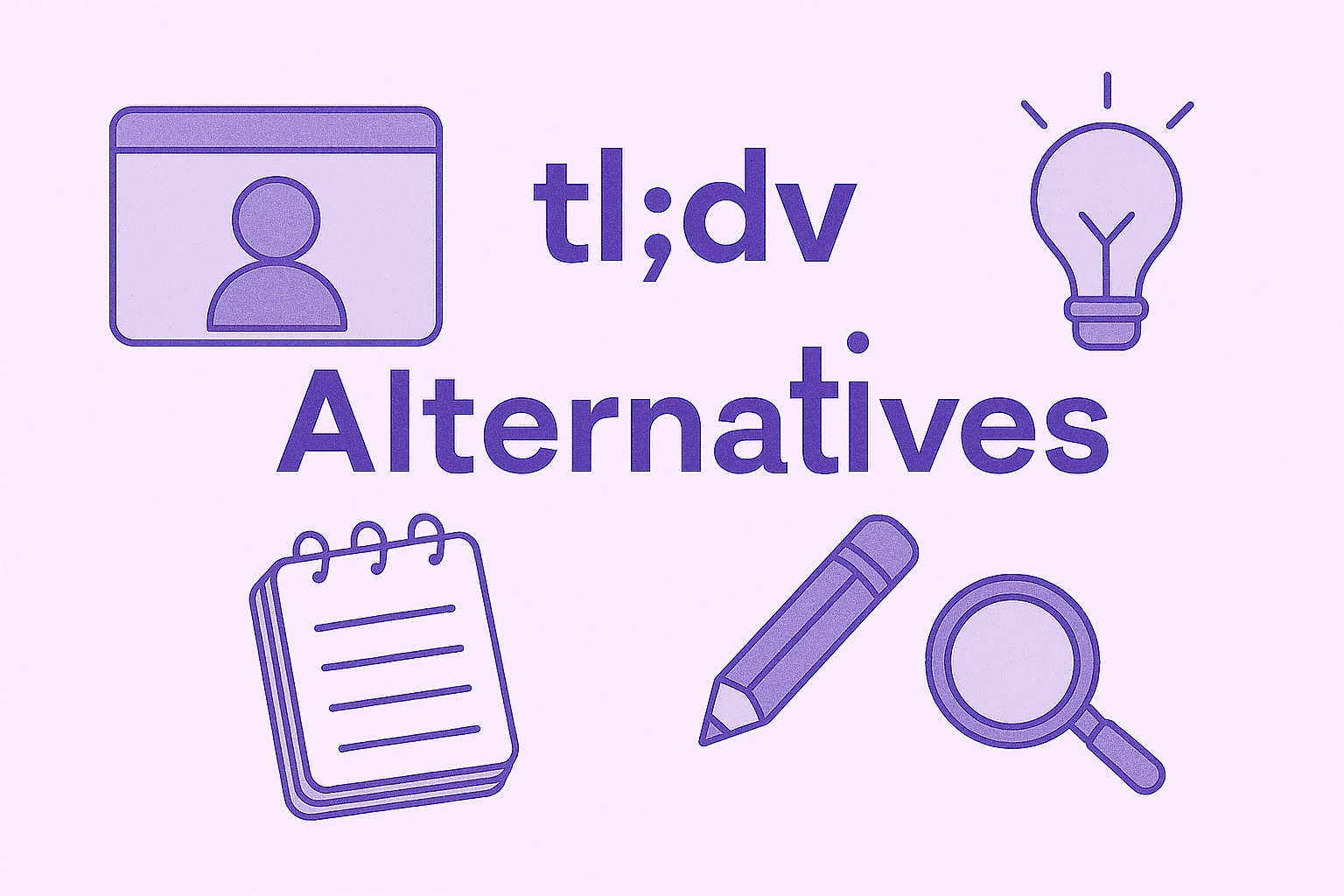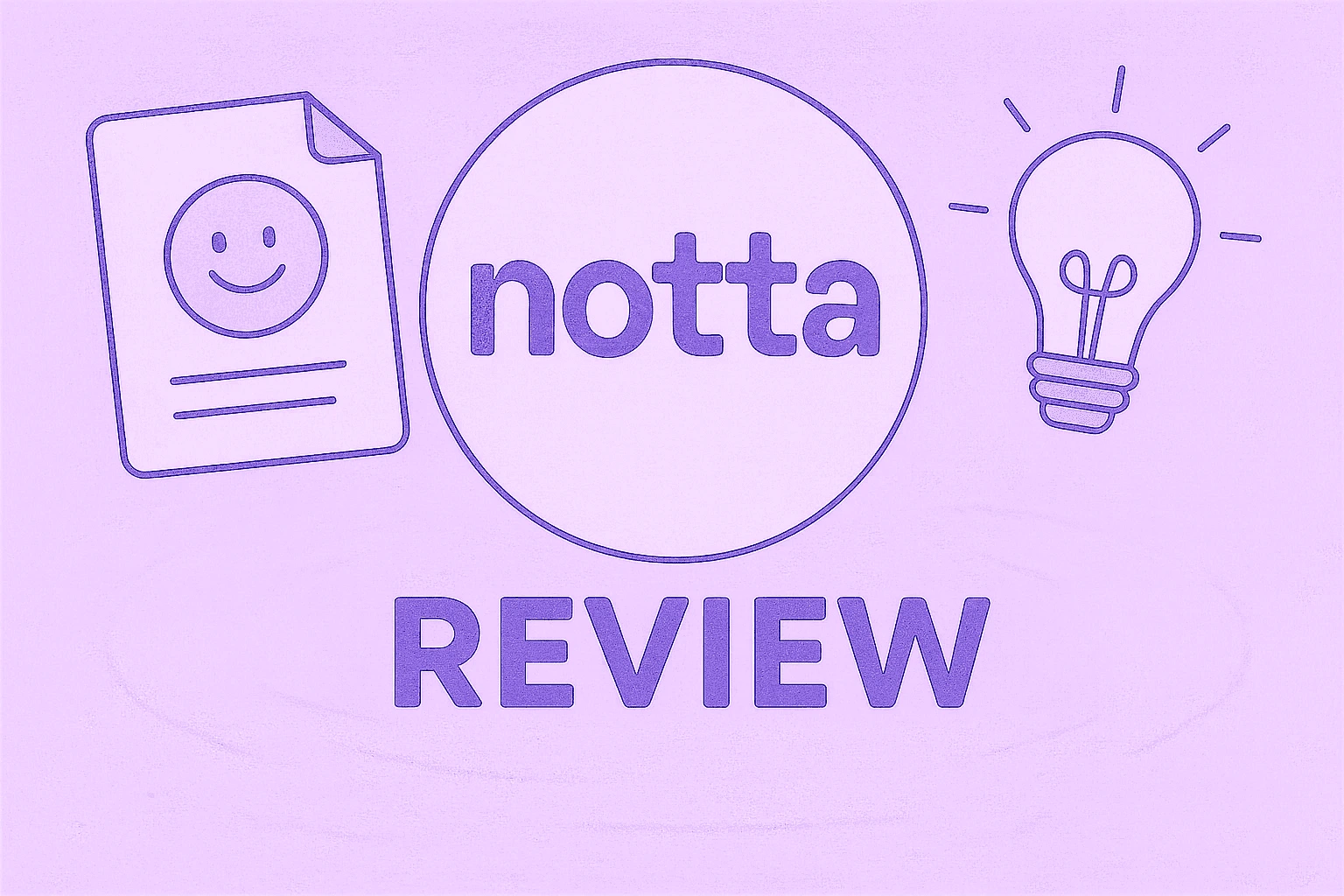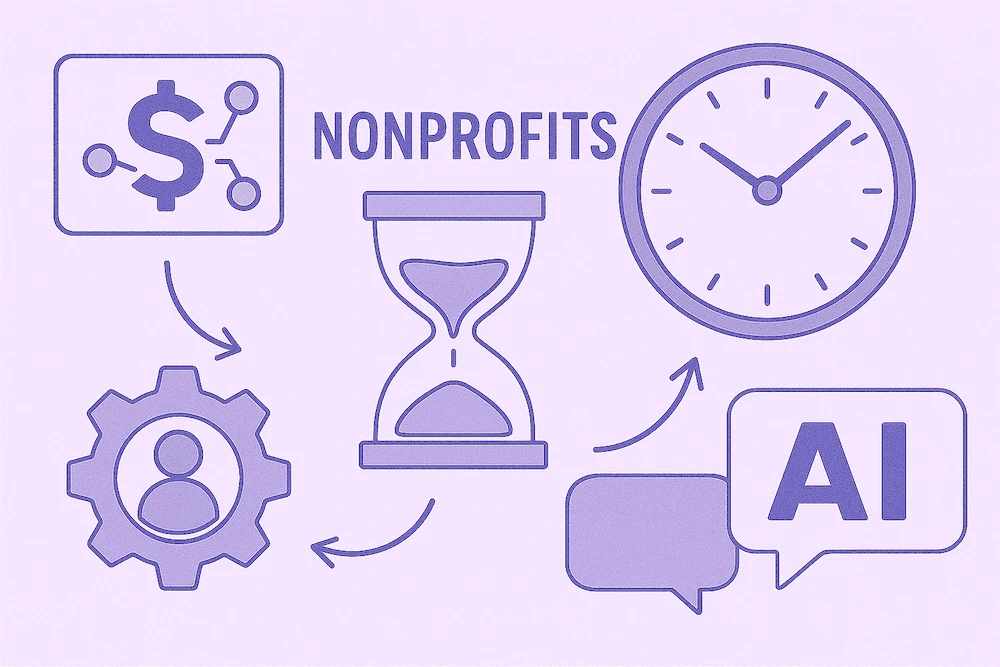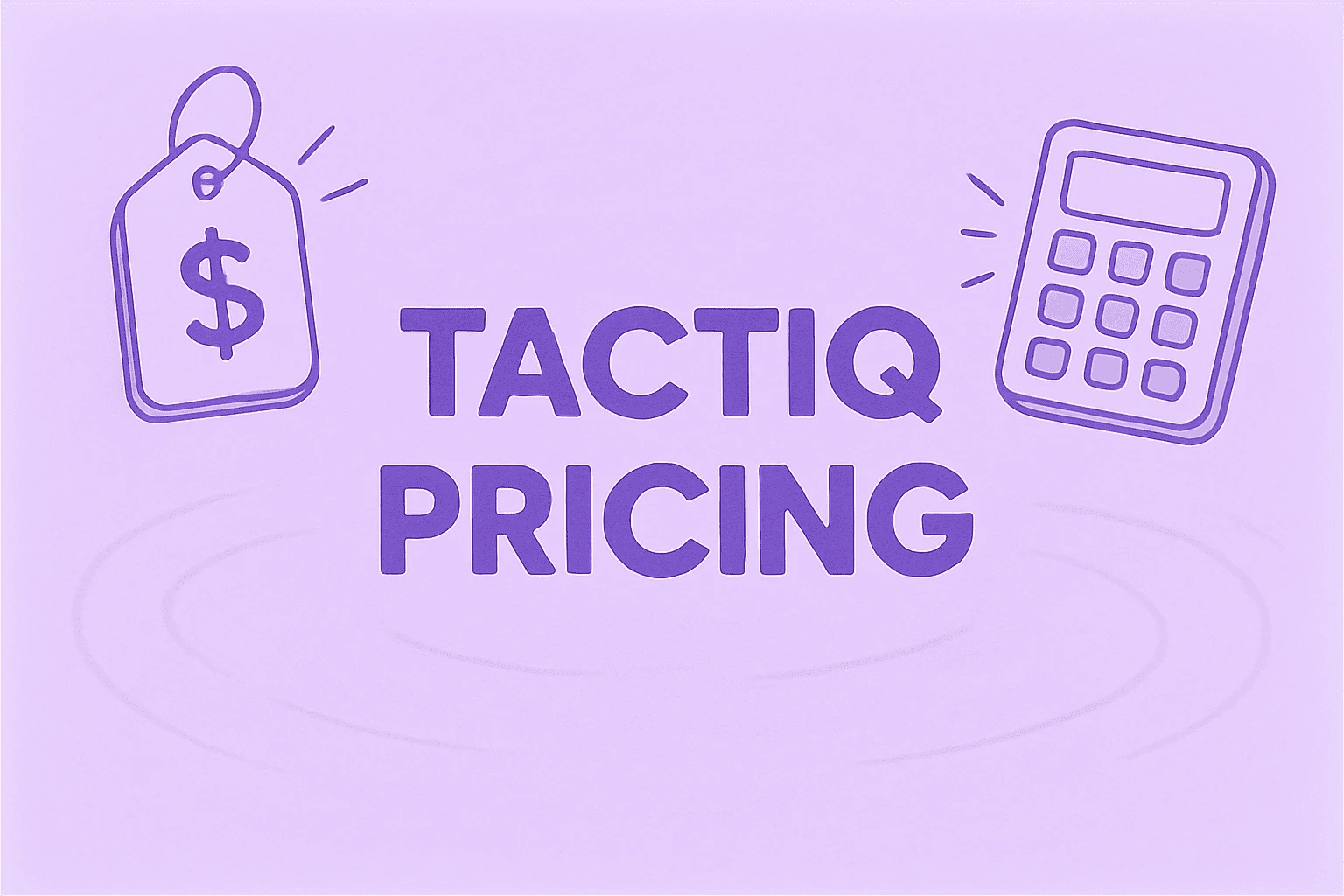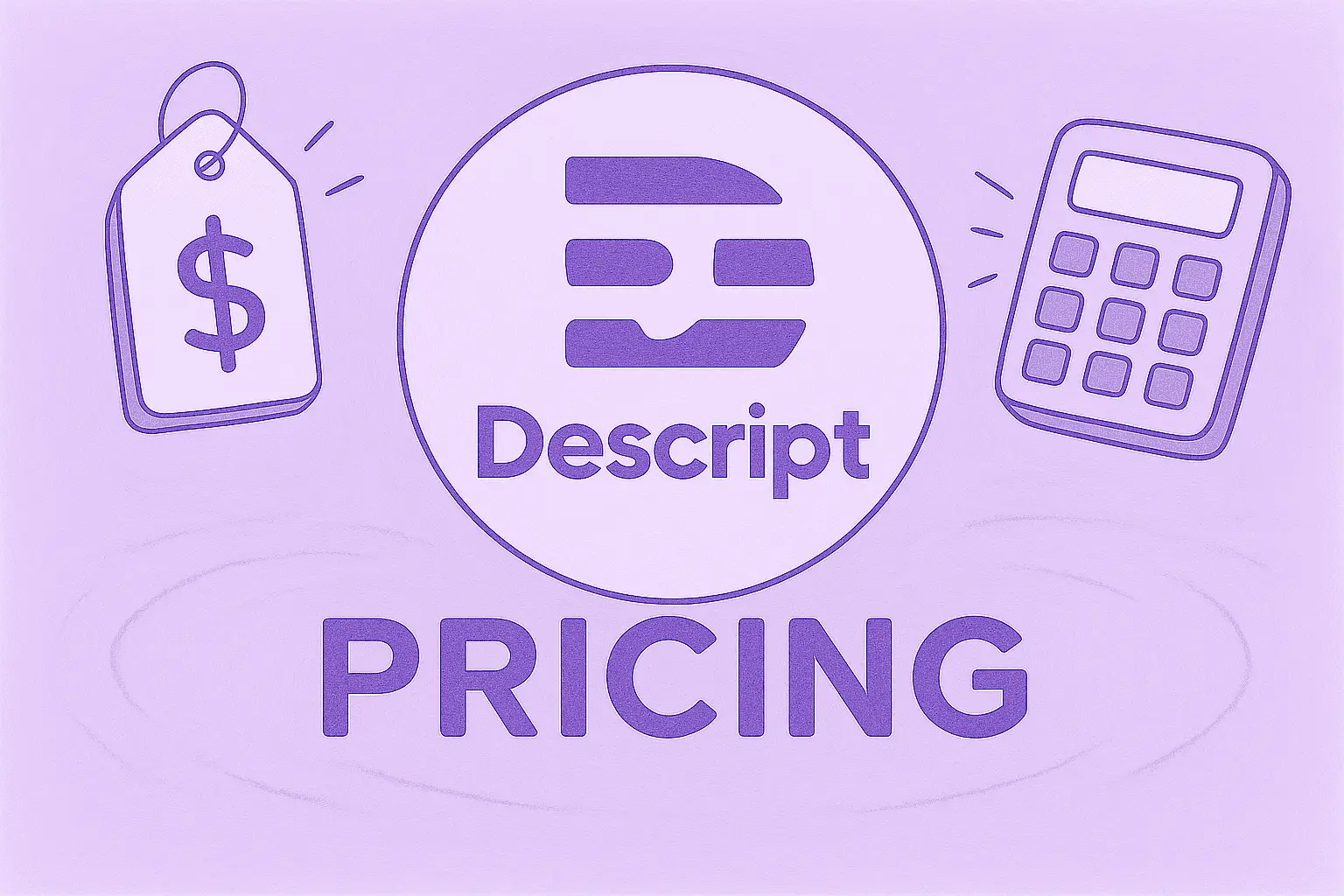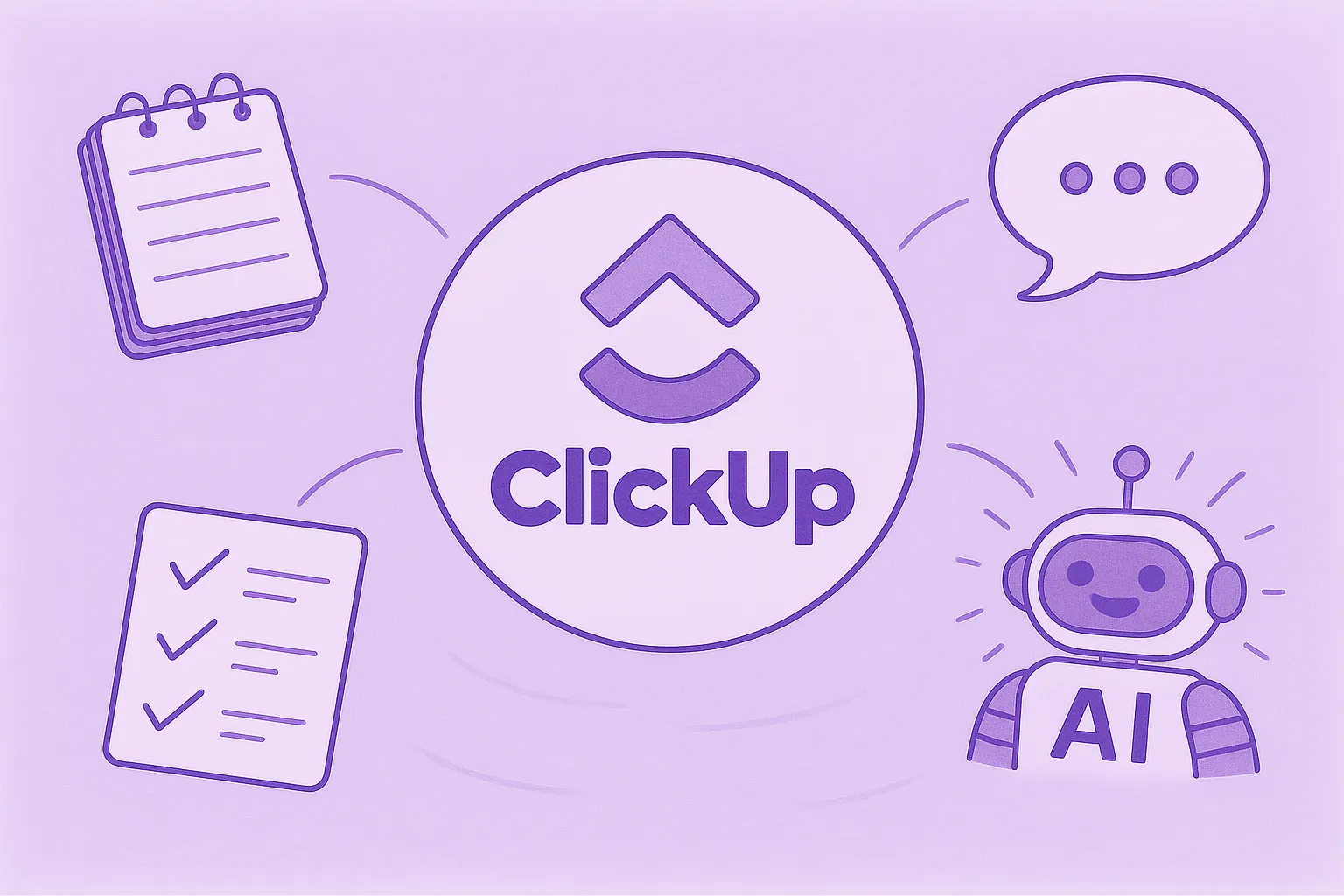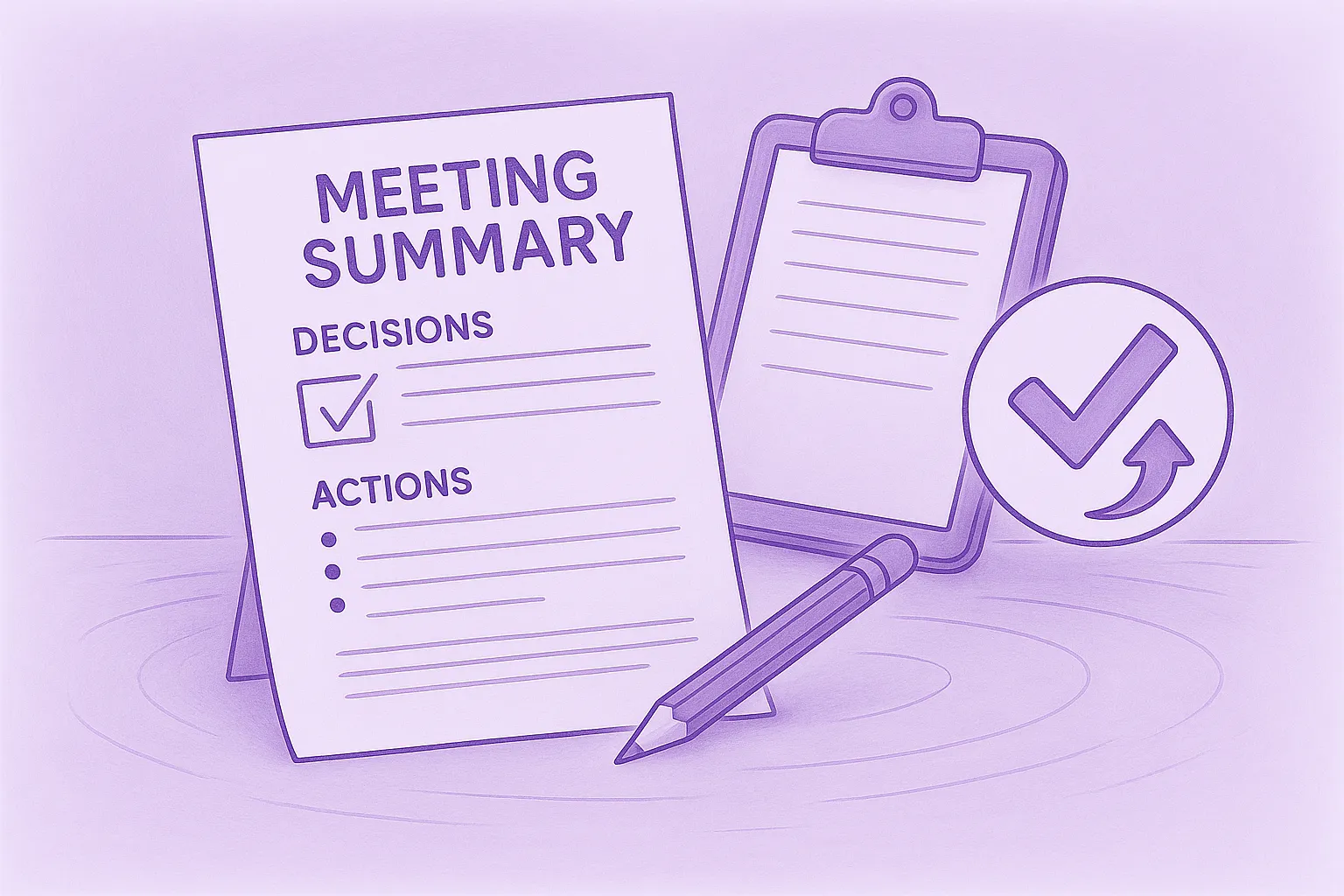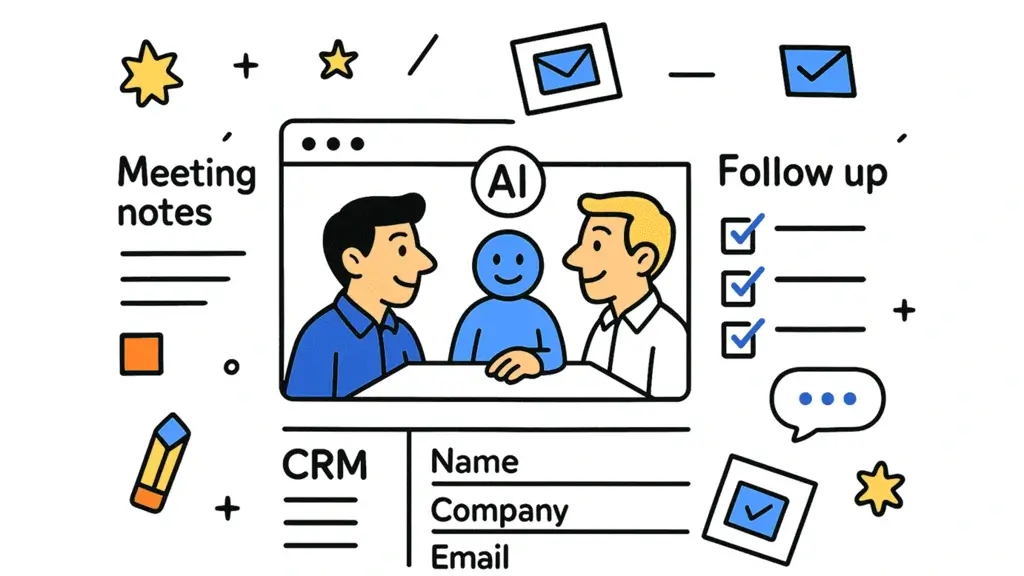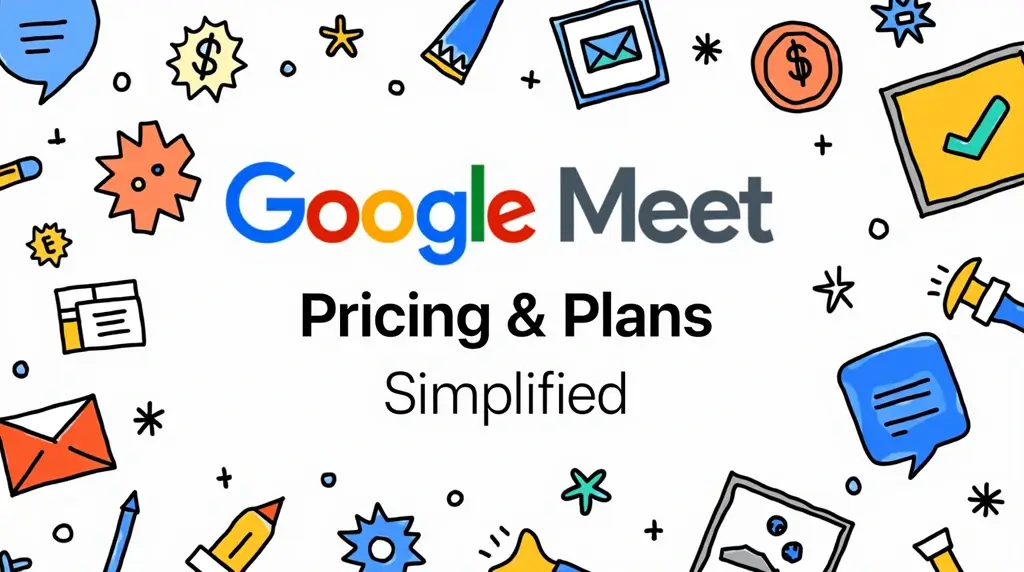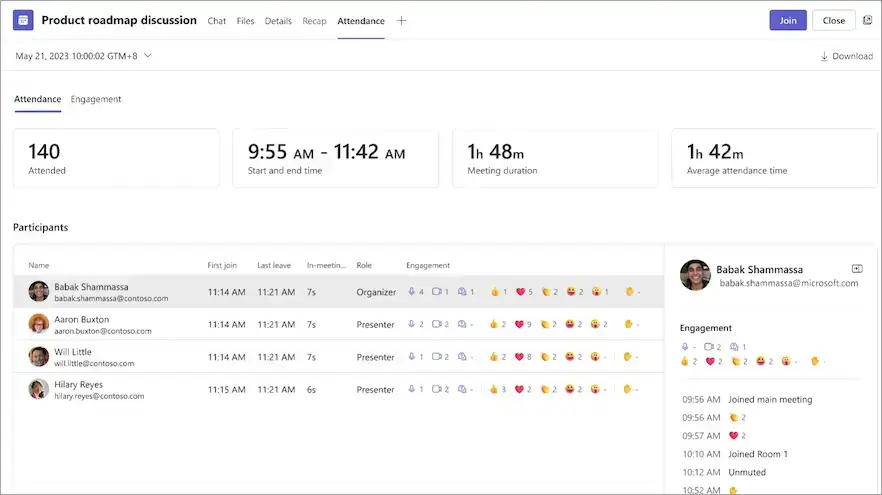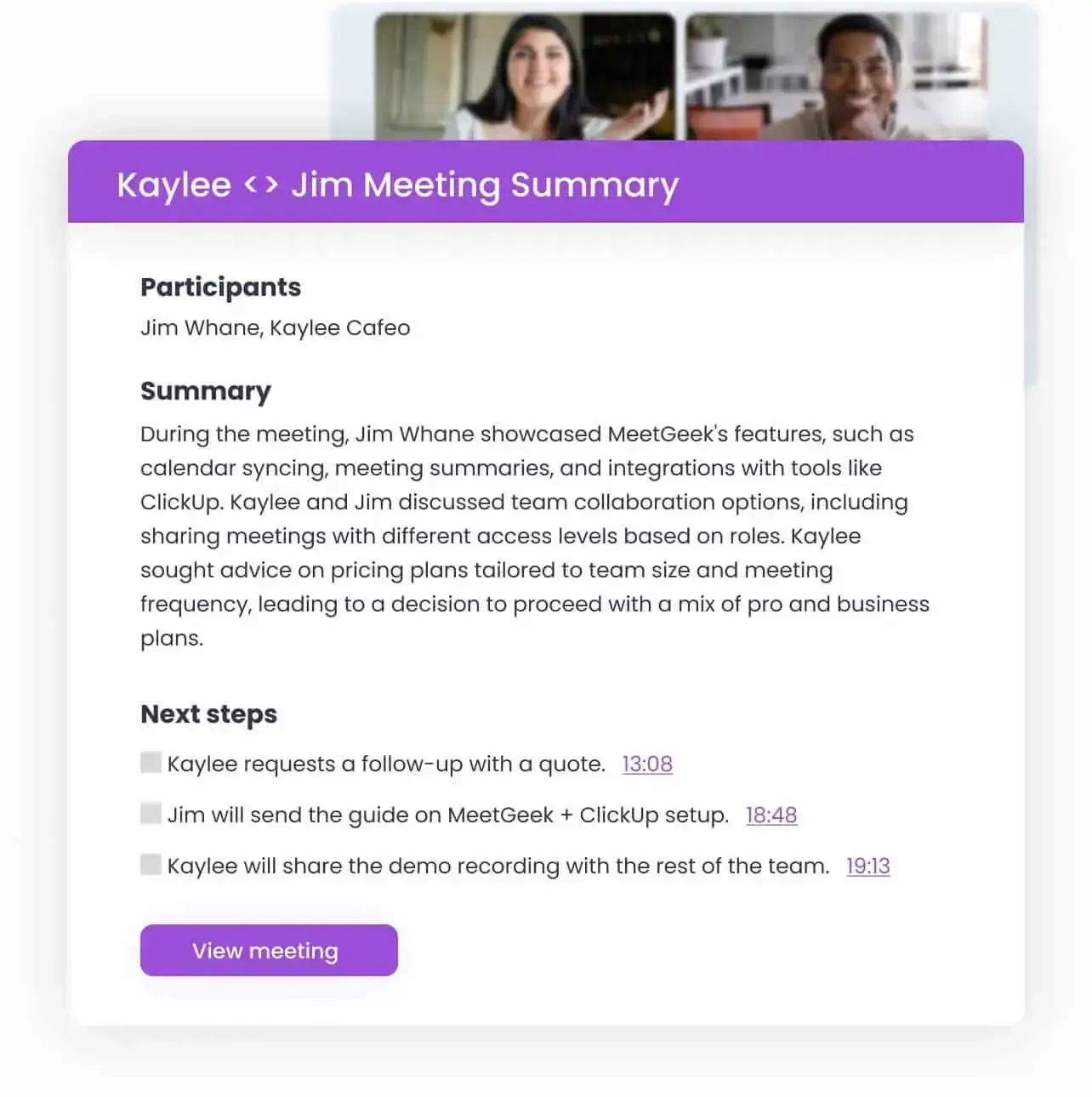How to Start a Consulting Business in 10 Steps (+Tips)
If you've been thinking about how to start a consulting business for a while, you're in the right spot! Read this to learn everything you need to know & more.

✅ Free meeting recording & transcription
💬 Automated sharing of insights to other tools.

Image Source: freepik on Freepik
You put in the hours and became a respected expert in your field, but when it comes to learning how to start a consulting business, you still feel intimidated. What if we told you that doesn’t have to be the case?
With the right strategy and execution, you can achieve impressive results. Keep reading to learn the 10 steps you need to follow to achieve your lifelong dream and create a profitable consulting business!
Table of Contents:
What Is Consulting And How to Make a Business Out Of It?
15 Types of Consulting Businesses to Choose From
4. Diversity, Equity, and Inclusion Consulting
13. Public Relations Consulting
10 Steps to Start Your Own Consulting Business
A. Assess Your Strengths and Weaknesses
2. Understand What Your Consulting Industry Needs
B. Network With Industry Professionals
C. Use Social Media To Your Advantage
3. Choose Your Consulting Business Model & Structure
• Limited Liability Company (LLC)
4. Create a Business Plan And Get Set Up
A. Set Your Goals and Objectives
8. Create & Price Your Consulting Services Offer
10. Close Deals to Make Your Consulting Business Profitable
Start Your Successful Consulting Business Today!
What Is Consulting And How to Make a Business Out Of It?
Consulting is a part of the professional services area that provides expertise and advice to businesses, organizations, and individuals. Consulting services can involve anything from helping a company develop a strategy to providing individualized coaching and advice.
Providing consultancy can be a lucrative business. It allows you to harness and monetize your skills and knowledge by helping individuals and businesses reach their goals.
How do you go from expert to professional consulting business owner?
Before considering any additional steps, you need to establish yourself as an expert in your field and build a strong network of contacts to help you find clients. You may also need to consider getting certifications or other credentials to help market your services.
You can provide your services in various ways, including in person, over the phone, or online. Regardless of the type of consulting you do, it is important to understand the needs of your clients and to develop a strategy that is tailored to their needs.
15 Types of Consulting Businesses to Choose From
When choosing the exact type of consulting firm you want to start, the possibilities are virtually endless. This means that you can monetize your expertise in any field. However, a few fields seem to attract plenty of customers.
Here are the most profitable consulting business ideas to choose from:
- Brand Consulting
- Business Consulting
- Career Consulting
- Diversity, Equity, and Inclusion Consulting
- Environmental Consulting
- Financial Consulting
- Healthcare Consulting
- Human Resources Consulting
- IT Consulting
- Management Consulting
- Marketing Consulting
- Operations Consulting
- Public Relations Consulting
- Sales Consulting
- Strategy Consulting
Let’s see how you can put your knowledge and skills to good use in each of them!
1. Brand Consulting
Brand consulting is a specialized service that assists organizations in creating, maintaining, and managing their brand identity. It includes defining a brand's purpose, values, and voice, assisting in creating the visual components of a brand, and marketing the entire concept.
According to a study conducted by the Association of Brand Consultants, 63% of companies are already using in-house brand consulting teams to manage their initiatives.
2. Business Consulting
If you’re keen on helping different organizations improve their performance and operations, this one’s for you — especially if you are passionate about strategy customization, operations, finance, and marketing.
The business consulting market was evaluated at $824.2 Billion in 2021 and specialists believe it will reach approximately $1,048.9 Billion by 2028.
3. Career Consulting
There’s no better feeling than helping others make well-informed decisions about their career paths.
As a career consultant, be prepared to assist individuals in planning their career goals and creating an action plan for achieving them. The career consulting sector is projected to reach a worth of $15.1 billion in 2023.
4. Diversity, Equity, and Inclusion Consulting
As a diversity, equity, and inclusion consultant, you get to work with organizations to identify challenges, assess their current practices, and implement strategies to improve how they’re performing in this area.
This includes coming up with plans to increase recruitment, mentorship, and promotion of people from diverse groups, providing training and resources to help create a more inclusive work environment, and developing policies to ensure all employees are treated with respect and fairness.
Actually, the diversity, equity and inclusion consulting market has one of the highest CAGRs, as it’s expected to increase its value at an astounding rate of 12.6% and reach $15.4 billion by 2026.
5. Environmental Consulting
Environmental consultants specialize in assessing, mitigating, and managing environmental hazards, as well as providing solutions for compliance with environmental regulations.
In a market that’s set to reach $50 billion by 2028, you can provide a wide range of services, such as creating environmental impact reports, assessing sites for potential contamination, and providing solutions to environmental issues.
6. Financial Consulting
Making sound financial decisions is paramount, and everyone knows it. Financial consultants analyze financial data, identify potential opportunities and risks, and develop strategies that ensure long-term financial stability.
If you possess the knowledge and expertise to provide advice on a wide range of topics, including budgeting, investments, retirement planning, insurance, taxes, and estate planning, you’ll have the opportunity to dip your toes in numerous industries. In 2020 alone, the financial consulting market amassed around $38 billion.

7. Healthcare Consulting
Providing advice and solutions to healthcare organizations covers a range of topics, from operational efficiency and compliance to industry trends, technology, and strategic planning.
Healthcare consulting is a rapidly growing industry. In 2022 alone, the market size for global healthcare consulting services was estimated to be USD 13.7 billion, and is estimated to grow at a CAGR of 8.3% from 2023 to 2030. Healthcare consulting services often assist organizations in selecting the right EHR vendor, ensuring that the electronic health records system integrates seamlessly with existing workflows and complies with industry regulations.
8. Human Resources Consulting
The job of an HR consultant is to help companies manage and optimize their human capital. If you’re knowledgeable in recruiting, staffing, developing and managing employees, and implementing employee benefits and compensation programs, this one’s for you.
In practice, this often includes evaluating hiring strategies and talent pipelines commonly used by top IT recruiting companies to adapt proven approaches for building strong, scalable teams within different organizational structures.
You’ll also help companies to identify and address areas of improvement, as well as provide your skills, knowledge, and expertise to develop and enforce effective HR practices. The size of the global human resource management market was estimated at an astounding USD 19.38 billion in 2021 and is projected to increase at a yearly rate of 12.8% until 2030.
9. IT Consulting
Nowadays, you can help organizations save money by avoiding common IT mistakes, increasing their efficiency and productivity, and staying up to date with the latest technology.
As a certified professional, you’ll be able to provide expert advice and guidance to organizations or individuals for their IT-related needs. This can include anything from IT security and risk management to data storage and software development.
The IT consulting market is a fast-expanding one, with an expected total revenue estimated to reach $665.9bn in 2023.
10. Management Consulting
If you’ve been waiting to start out as a management consultant, this is your year. The total income of the management consulting sector is expected to amass $329.9bn in 2023.
Management consultants get to work with organizations from a variety of industries and provide strategic advice and guidance on topics such as organizational structure, process improvement, strategy development, and cost reduction. Essentially, you’ll be helping organizations become more efficient, cost-effective, and successful.
11. Marketing Consulting
Are you a pro at selecting the right specialized marketing strategies to help companies identify and capitalize on their most profitable opportunities?
As a marketing consultant, your main tasks will involve analyzing a company’s existing marketing activities and understanding its target audience, as well as creating and implementing effective strategies to drive greater success.
Marketing consulting is a highly lucrative field, given that the income of marketing consultants has increased with a CAGR of 3.3% to reach $79.3 billion over the past five years.
12. Operations Consulting
If you have the vision and expertise that it takes to help businesses develop and implement strategies to improve their operational performance, this one’s for you. Operations consulting includes a wide range of services, from assisting with process improvement and cost reduction to providing guidance on organizational transformation.
This sector is all about helping organizations become more efficient and competitive in the market, and companies know it. In fact, a Grand View Research report estimated that the global operations consulting market size was worth $68.9 billion in 2020.
13. Public Relations Consulting
Public relations consulting is a specialized field of professional services that helps organizations build and maintain positive relationships with the public. Through strategic communication, you help clients build their brand, shape public perception and increase visibility.
Be ready to provide guidance on how brands can communicate with the public, reach their desired target audiences, build trust and credibility, and create a positive image. And, above all, be ready to manage any image crises that may suffice.
It is estimated that in 2023 alone, the global PR industry will have an approximate value of $107 billion. Effective global PR strategies are crucial for navigating cultural differences and communication challenges, ensuring that messages resonate across diverse audiences worldwide.
14. Sales Consulting
If you’re an expert in a broad range of activities including sales strategy, sales process improvement, sales force optimization, sales training, and sales technology implementation, you may want to consider becoming a sales consultant.
The most common type of sales consulting service is sales strategy, so be prepared to help companies identify and close sales opportunities, increase customer satisfaction and loyalty, and maximize profitability.
If sales consulting is your thing, read this article to learn everything you need to know and more about helping your customers increase their productivity!
15. Strategy Consulting
Strategy consulting typically involves identifying and analyzing an organization's strengths and weaknesses, as well as its external opportunities and threats, to develop and implement a strategic plan.
As a strategy expert, you get to help companies make decisions about how to best allocate resources, develop competitive strategies, create innovative products and services, and respond to changing market conditions.
In 2021, the worldwide strategy consulting sector was estimated to be worth $38.4 billion, and is projected to increase to $111.4 billion by 2031 with a CAGR of 11.6% from 2022 to 2031.
10 Steps to Start Your Own Consulting Business
Rome wasn’t built in a day, and neither is a successful consulting business. What this means is that you’ll need a very methodical and structured approach when you decide to start your own business.
Here are the 10 steps you need to follow to start your own consulting business:
- Find your niche
- Understand what your consulting industry needs
- Choose your consulting business model & structure
- Create a business plan and get set up
- Hire the right people
- Invest in the right tools
- Develop a marketing plan
- Create & price your consulting services offer
- Find potential clients
- Close deals to make your consulting business profitable.
Let’s dive deeper into each step!
1. Find Your Niche
Starting a consulting business requires specialized knowledge in a particular field in order to offer value to customers. Here is how to carve out your niche within the market of your interest.
A. Assess Your Strengths and Weaknesses
Begin by assessing your strengths and weaknesses to determine where you can be of help. Always keep in mind that individuals and companies are willing to hire someone from the outside to provide expertise because they are unable to solve their problems themselves.
Despite having a wide-ranging set of skills and experiences, it is important to understand that employers or clients may not need all of them. Therefore, it is beneficial to focus on a specific area to make it easier to show how your skills and abilities can be used to fulfill the company or client's needs.
B. Choose Your Area Wisely
Taking the time to reflect and research different skill sets or areas of expertise that you are well versed in can help you identify which one you should focus on. For instance, someone who is experienced in sales may have various specializations.
You could form a consulting company that provides sales consulting to startup companies, that often require assistance when starting from scratch. Alternatively, you could concentrate on sales consulting for a particular industry, such as real estate or insurance.
Consider role-playing what it would be like to be engaged in a specific niche occupation; this will provide you with a better sense of which one offers more potential for your future career.
Also ask for advice and feedback from trusted colleagues, friends, and advisors to gain a different perspective on your potential niche.
C. Get Additional Training
Remember, consulting is all about credibility. Offering consulting services in a subject that you are not familiar enough with will result in a negative reputation. In such cases, investing in online reputation management software is crucial. This technology assists in safeguarding and improving your digital presence. It integrates customer feedback from multiple channels, including reviews, ratings, and social media interactions, providing the insights needed to solidify your online reputation and enhance customer interactions.
If being a consultant is what you want, but you don't have an area of expertise, invest time in gaining experience and insights. Focus on getting right in the middle of what you want to become an expert in.
Although you may have the required qualifications in a certain area, think about the areas you may need extra training as a consultant.
Depending on the specifics of your niche, you could find yourself having to give presentations, instruct various teams, detect and assess already existing issues, and interpret the data you find.
Your ability to successfully complete these tasks will determine your success as a consultant.
Getting additional training in public speaking, negotiation, networking, or business management can help you build better relationships with clients and increase the chances of generating successful outcomes.

2. Understand What Your Consulting Industry Needs
As a consultant in any industry looking to start a consulting business, it is important to know all about industry trends and developments. Knowing what your industry needs can be a challenge, but there are several ways you can stay ahead of the curve.
A. Keep Up With Industry News
Staying abreast of any industry news that is available is paramount. Many industries have trade publications, websites, and blogs that are dedicated to providing the latest news and developments.
B. Network With Industry Professionals
Networking with other industry professionals is another great way to stay informed about what your industry needs. Attending industry conferences or seminars and connecting with peers in the same field will offer invaluable insights into the current trends and needs of your particular field.
C. Use Social Media To Your Advantage
Social media is an efficient way to engage with other industry professionals, share news and insights, and gain a better understanding of the industry. It is also a great way to stay informed of any changes in the industry that affect your clients on a daily basis.
To enhance your presence on social media, consider using VEED's video editor to create compelling and informative content that showcases your expertise and attracts potential clients. Their user-friendly tools also allow you to convert videos between formats like MKV and MOV, ensuring your content is compatible with various platforms and reaches a wider audience.
D. Research Customer Feedback
By learning what customers are saying about your industry and the services your competitors provide, you’ll understand what clients in this industry expect from consultants. This way, you’ll better serve your clients and structure your services accordingly.
3. Choose Your Consulting Business Model & Structure
When learning how to start a consulting business, you need to pay close attention to choosing the right business model and legal structure for you.
A. Solo Consulting
A sole proprietorship is the most basic business entity and involves one person who is solely responsible for business profits and debts.
While in a lot of cases, solo consultants provide their expertise to individuals, there are still plenty of companies and organizations that choose this type of consulting.
Here are the most important advantages of this business model:
- Streamlined
- Profitable
- Adjustable
- Can be tailored to your concrete lifestyle
- Offers more personalization for clients.
The downside is that it can be difficult to market since you are the face of the business, and there may be difficulty in continuing to generate revenue if you’re not actively working.
B. Consulting Firm
Like most owners of consulting firms, your role shifts from providing direct client services and business development to managing and developing your own team. You will be responsible for increasing the number of clients and hiring additional staff in order to grow your business.

The firm model is advantageous in a way that it can easily scale up to take on more work, has a higher value, and is easier to sell. It also has drawbacks, such as lower profit margin, involves more careful planning, and comes with additional infrastructure requirements.
Here are the most popular consulting firm models to choose from:
- Partnership
A partnership is a legal arrangement commonly used by small businesses. It is an agreement between two or more people who want to start a business together and share in the profits and losses.
The benefits of a partnership include ease of setup and joint responsibility for the business's debts. The downsides are that disagreements between partners can be difficult to resolve, and all partners are liable for the business's debts.
- Limited Liability Company (LLC)
An LLC is a type of legal entity that provides its owners with limited liability, meaning they are not personally responsible for the debts and liabilities of the business. The advantages of an LLC include flexibility in management, pass-through taxation, and limited personal liability. To make setting up an LLC easier, many business owners use LLC formation services. These services take care of the paperwork, compliance requirements, and filing procedures, making the whole process much simpler. The disadvantages include a lack of availability in some states and self-employment taxes.

- C Corporation
A C Corporation is an entity that is separate from its owners, with its own shareholders and tax ID. The main benefit is limited liability for its owners, meaning they are not personally responsible for the liabilities or debts of the business.
Keep in mind that C Corporations are subject to double taxation, so both the corporation and its shareholders pay taxes on their profits.
- S Corporation
Registering your consulting business as an S Corporation provides you with limited liability protection and allows you to pass business income through to your personal income tax returns, avoiding double taxation. However, there are a few restrictions when it comes to this structure, such as the number of shareholders permitted.
When embarking on this journey with other partners, efficient communication is essential, so video calls become the norm. MeetGeek is an AI virtual meeting assistant that is specifically designed to allow you to focus on your meetings while it automatically records, summarizes, and transcribes them.

C. Productized Consulting
The productized consulting firm model focuses on solving one specific problem for a particular customer base. It involves creating systems and processes to efficiently solve the problem and can be scaled up by delegating the delivery, service, sales, and marketing to other people.
This model allows you to create a salable asset that has the potential to generate a recurring stream of revenue. However, this model can be monotonous for some and requires additional personnel to carry out the work, along with the management of multiple clients.
D. Hybrid Approach
When choosing a hybrid approach, you select elements from the business models we previously mentioned and tailor them to fit your vision.
If you are looking for more meaningful connections, you may opt for a model that involves a more hands-on approach, such as providing direct consulting services. This way, you can be more involved in your clients' businesses, and have a greater impact on their success.
As it is important to choose a legal structure that is most suitable for your company, we advise you to consult an attorney for further information but to always keep in mind the type of impact that you want to have in the great scheme of things.
4. Create a Business Plan And Get Set Up
You know what you bring to the table, how to leverage your skills, and already decided on your business structure. It’s finally time to open your business. But before you get ahead of yourself, you must create a good business plan.
Your business plan should have a strong foundation in your value proposition and target market. Make sure to include a competitive market analysis, financial figures, and estimated costs of running your consulting business.
Here are a few things you’ll need to do to write a good business plan:
A. Set Your Goals and Objectives
Start by defining your goals and objectives. Consider the size of the business you want to create, the type of clients you’ll be targeting, and the services you’ll provide. Make sure your goals are attainable in the market that you’re targeting.
B. Perform Market Research
Research the industry you’re entering, as well as your potential competitors. You can gather data through primary and secondary research methods. Primary research methods involve collecting data directly from customers (e.g.: through surveys), and secondary research methods involve obtaining data from sources such as industry reports and government statistics.
Interpret the data you have collected to identify opportunities, develop strategies, and make informed decisions about your consulting business.
C. Calculate Your Costs
Accurately calculate your startup costs, so you know how much money you need to get started. This includes everything from office supplies to employee salaries. Additionally, your financial plan should include projected income, expenses, and cash flow. Usually, this step reveals if and what kind of investment funds you would need, so, besides your business plan, also create a pitch deck that will make your case in front of startup investors.

Keep in mind that it is natural for business plans to change and evolve as time passes, so don't be afraid to make necessary adjustments as long-term goals and new opportunities arise.
5. Hire the Right People
The speed at which your consulting business takes off will determine whether it's necessary to hire additional staff. Working long hours seven days a week is not feasible, especially as your consulting practice starts getting bigger.
If you have the financial ability to hire more people, write up job descriptions and post them on job searching websites.
An alternative to job boards would be to partner up with independent contractors or recruit freelancers from websites and other platforms that provide this type of employee resources. Freelancers or independent contractors are more cost-effective than full-time employees — they won't require benefits, healthcare, etc. — and they are easier to manage since they are in charge of their own taxes and legal matters.
Another option would be get in touch with your contacts to see if someone is interested in being a part of your expanding team.
When interviewing possible applicants, make sure their abilities are appropriate for the job, and they would fit in with the type of company culture you want to create.
However, there are a few key players you’ll need to collaborate with from the get-go:
A. Hire a Lawyer
Hiring a lawyer will ensure that your business is compliant with the local and national regulations.
Failing to do so can lead to complications if a partner decides to leave, counting on the remaining partners to manage the business. A qualified lawyer can advise on the type of business structure that will provide security and options for the future.

B. Hire a Bookkeeper
Bookkeepers or small business CFO make sure your financial records are accurate and update them in accordance with any financial law changes. This way, in case the IRS verifies them, there won't be any gaps in your financial reports.
Moreover, they can assist you in organizing relevant financial information, such as sales and inventory data, as well as employee customer information. They ensure that tools like a template for accounting invoices are utilized to maintain consistent and that customer invoices are sent out in a timely manner. To streamline processes, these professionals can also leverage tools like a receipt template and invoice generator.
The best part is that most bookkeepers can work remotely and only need to come to the office periodically.
C. Hire an Accountant
While bookkeeping and accounting overlap, there is an essential distinction between them. Bookkeeping focuses on the recording, organization and presentation of financial data, while accounting involves the utilization of that data to devise strategies, assess fiscal situations, and plan taxes.
Bookkeepers or Accountants are able to provide a better understanding of a business's financial standing and help you make more informed decisions, especially when it comes to accounting for small businesses.
6. Invest In the Right Tools
The tools you need to implement include accounting systems to help you keep track of finances, as well as programs like Microsoft Office or Google Workspace that will help you keep everything organized.
Additionally, consider getting a customer relationship management (CRM) system for managing client relationships. Investigate the software that is best suited to your requirements and get it set up.
With the increasing attention given to AI tools that can automate manual tasks, you may be interested in finding one for your own tasks as well.
Speaking of tools, once you get the ball rolling, the number of meetings you’ll have to attend as your own boss will soar — at least for a bit.
Meetings can be stressful, especially when you need to focus on what everyone is saying, keep notes of all the information participants exchange, and summarize everything in an optimal manner, all while still trying to share your thoughts efficiently.
MeetGeek is coming to your rescue. Our tool is specifically designed to allow you to fully engage in your meetings, while it takes care of the rest — automatically!

To create customized invoices, opt for a free consulting invoice template that fits your needs and lets you create tailored invoices in less time. For those who value efficiency and simplicity in client interactions, utilizing a dependable invoice maker can significantly streamline the billing process, ensuring that you stay organized and professional without investing extra time into creating these manually.
7. Develop a Marketing Plan
A successful marketing plan facilitates your success and makes you stand out in a competitive field. Consider prioritizing these elements when creating your marketing strategy:
A. Brand Identity
B. Website
C. Social Media Marketing
Here’s exactly what you need to do to hit your marketing targets!
A. Brand Identity
Investing effort and creativity in coming up with a relevant and catchy company name, a memorable logo, and a custom email address will ensure your business has more credibility when it comes to potential customers.
Even if you have a limited budget, you can still create a strong brand identity that will help your business grow and succeed. Some cost-effective ways to do this are hiring freelancers from freelancing websites, or ask your network for recommendations. When expanding your business to other countries, such as Canada, securing a trademark is crucial to maintaining your unique brand identity. Before proceeding, it is essential to check trademark availability in Canada to avoid potential legal complications. Understanding the nuances and specific requirements for trademark registration will streamline the process and ensure that your branding efforts effectively protect your company’s distinctive elements.
Weak branding will only undermine the trust of your potential customers, as it gives them an inaccurate representation of the quality of your services.
B. Website
For this, you want to explore using an AI landing page or website builder, like Hostinger's, to simplify the process of creating landing pages that effectively showcase your services and encourage conversions. These tools can help you design landing pages that look professional and engaging, even if you're not a web design expert.
When launching your website, here are the things you need to focus on:
- Website customization: The website for your professional consulting business should include details of the products and services you offer, a description of the company's history, and contact details. It is also important to consider how the design of your website can impact user experience.
- SEO: Focus on search engine optimization to rank on Google and drive organic traffic to your website, as this helps potential customers find you.
- Social proof: Ask for feedback and testimonials from your previous clients and get permission to post their them to your website.

C. Social Media Marketing
Showcase yourself as a knowledgeable and reliable specialist by having an active online presence. Take some time to observe which platform your clients use the most, and study your competition to learn how to properly engage with your target audience.
Once you sign up on various social media platforms, consider collaborating with local micro-influencers who can help you increase your reach.
Participate in conversations about how to start a consultancy, as you can now speak from experience. Being active on platforms like Quora or Reddit will help you present yourself as a knowledgeable player in your industry and help you attract potential customers.
8. Create & Price Your Consulting Services Offer
When coming up with a pricing strategy, it is important to consider what kind of services you will be providing. Consultants can provide a range of support, from a general overview to a more in-depth look into a certain subject.
Additionally, you should think about whether you will be taking on short-term or long-term clients, as this will affect how much prep work you have to do and the pricing rate you set. The price you offer is a major factor in securing and keeping clients. If it is too high, they might be discouraged, and if it is too low, they might doubt your legitimacy.
To make sure you price your services appropriately, research how your competitors sell their services and try to stay within that range. There are three ways to charge your customers: hourly, project-based, and retainer.
- Hourly means the client pays for the time you spend
- Project-based remuneration depends on the work you complete
- Retainer is when you are paid a recurring rate for an ongoing service.
Consider providing introductory offers or add-ons with packages, and also reward loyalty for long-term clients.
9. Find Potential Clients
Create a strong network by making a list of people who can act as clients and referral sources. Reach out to them and let them know you have started your own business and seek their help in promoting it.
Additionally, consider attending events and joining social media groups or local communities with people from the industry to help grow your network. With determination, you can make your consulting company a success.
Any profitable consulting business puts their clients’ needs first, and so should you! MeetGeek is a virtual meeting assistant that will help you ace your client meetings in just a few clicks! How?
Our tool is specifically designed to allow you to actively listen to what your clients say, while it automatically records, summarizes, and transcribes your meetings.

10. Close Deals to Make Your Consulting Business Profitable
No matter how skilled you are, how great your marketing strategy is, or how cutting-edge your tools are, it all comes down to your ability to make and close sales.
Your elevator pitch is the key to grabbing the attention of potential clients and convincing them why they should choose your consulting business. The pitch should consist of a brief summary of the issue, the solutions you offer, and how you stand out from the competition.
Keep your pitch brief. It should be a concise version of your value proposition. If customers are interested in learning more, you can then tell them your story in more detail.
The last step in procuring new clients is often the writing of a good client proposal. This typically happens just before they commit to working with your consultancy and is an essential part of running a successful business.
When writing a proposal, it is vital to be clear about the services you are providing. Be sure to include all the details involved, such as deliverables, budget, and criteria for measuring success.

By demonstrating how you can solve your client's problem, you can close the sale. Afterward, repeat the process with all of your prospective clients.
PRO TIP #1: Focus on the customer, not the money. Take the time to understand the individual situation and let that drive your motivation rather than the payment.
PRO TIP #2: Continuously evaluate the services you provide to ensure they are of the highest quality and unique among your competitors.
Start Your Successful Consulting Business Today!
If you want to make your own schedule and become the boss of your own enterprise, learning how to start a consulting business may be the answer. Once you get the right processes and tools in place, you’ll be able to get started faster than you expect.
Try MeetGeek for free to help you on your journey and set the foundation for lasting success!
.avif)









.webp)










